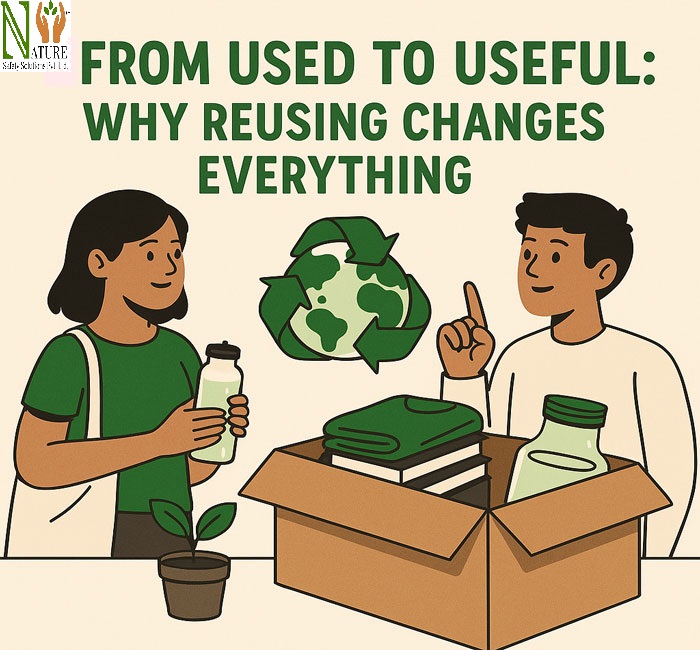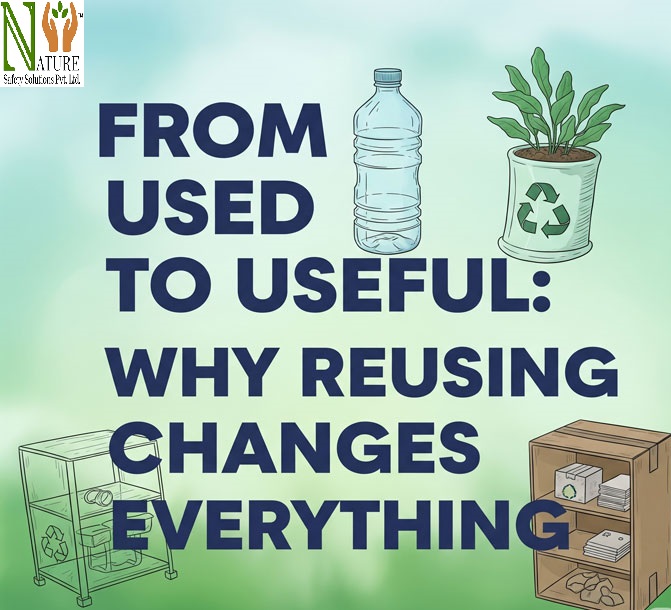Reusing is one of the simplest and most powerful ways to reduce waste. It keeps materials in use longer and helps protect the planet. Unlike recycling, which often requires energy and resources, reusing focuses on using items again in their current form. This small shift in habit can lead to big changes.

What Does Reusing Mean?
Reusing means using something again instead of throwing it away. It could be as simple as saving a glass jar for storage or giving old clothes to someone else. When we reuse, we give items a second life and reduce the need to produce new ones.
How Reusing Helps the Environment
Every product takes energy, water, and raw materials to make. When we reuse, we reduce the demand for new items. This helps cut pollution, save energy, and limit the use of natural resources. It also reduces the amount of trash sent to landfills.
For example, reusing a plastic container instead of buying a new one means less plastic waste and less oil used in manufacturing.
Reusing Saves Money
Buying new things all the time is expensive. Reusing helps you save. People who reuse often find creative ways to get the most out of what they already have. This might mean fixing a broken item or repurposing something instead of replacing it.
Thrift shopping, borrowing tools, and using refillable containers are all great examples. Over time, these habits can reduce your spending without lowering your quality of life.
Everyday Ways to Reuse
- Use cloth bags instead of plastic ones.
- Refill water bottles instead of buying new ones.
- Turn old t-shirts into cleaning rags.
- Use jars and containers for food storage.
- Donate clothes, furniture, or books instead of throwing them away.
These actions may seem small, but they make a difference. When many people reuse daily, the impact adds up quickly.

Reusing at Work and School
Workplaces can reuse too. Offices can print on both sides of paper, reuse folders, or donate unused equipment. Schools can reuse supplies, use refillable pens, or set up swap programs for uniforms or books.
By encouraging reuse, companies and schools can cut costs and show leadership in sustainability.
Why Reusing Matters More Than Ever
Our world is facing a waste crisis. Landfills are filling up, and oceans are polluted with plastic. Climate change is making everything more urgent. Reusing can slow these problems. It’s a practical, low-cost solution that almost everyone can do.
Reusing also teaches responsibility. It helps us think about how we use resources and how our choices affect the planet.
Also read:-
